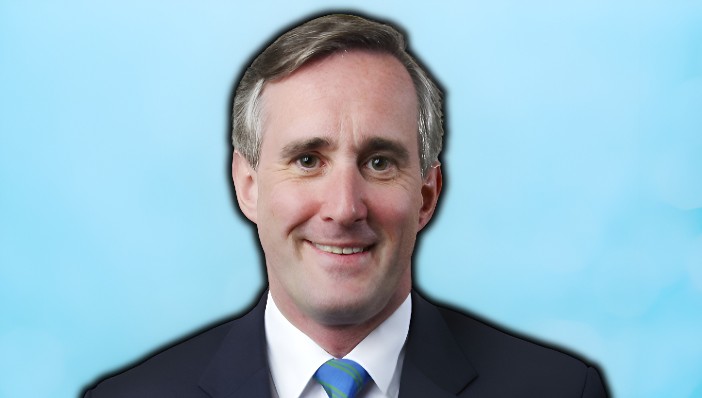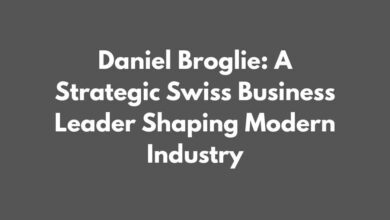Bob Wigley: The Visionary Powerhouse Shaping Britain’s Financial Future

Bob Wigley is a name synonymous with integrity, foresight, and deep-rooted expertise in the world of finance and economic leadership in the United Kingdom. With a career spanning several decades and a portfolio that includes some of the most influential positions in the global banking sector, Wigley stands out not just for his corporate accomplishments but also for his public service, thought leadership, and relentless commitment to innovation and societal well-being.
From his pivotal role at Merrill Lynch to his chairmanship at UK Finance, and his active involvement in education, technology, and climate strategy, Bob Wigley’s career trajectory offers a compelling case study in modern financial leadership. This article delves into his life, contributions, and lasting impact on the UK’s financial landscape and beyond.
Early Life and Educational Background
Bob Wigley was born on 4 February 1961. He was educated at the University of Bath, where he studied business and graduated with a Bachelor of Science degree. His early years were characterised by intellectual curiosity and a desire to excel in fields that intersected economics, policy, and leadership. This solid academic grounding would become the bedrock for his meteoric rise in the corporate finance world.
Rise to Prominence at Merrill Lynch
Bob Wigley’s ascent to financial prominence began in earnest with his tenure at Merrill Lynch, one of the world’s leading investment banks. He served as Chairman of Merrill Lynch for Europe, the Middle East, and Africa (EMEA), a position he held from 2003 to 2009. His leadership coincided with one of the most turbulent periods in modern financial history—the 2008 global financial crisis.
As EMEA Chairman, Wigley demonstrated a cool-headed pragmatism, steering operations with clarity and purpose. He was instrumental in advising governments, regulators, and central banks during this period of intense instability. His ability to balance commercial objectives with the broader needs of the financial ecosystem earned him significant respect across public and private sectors alike.
Contribution to the Bank of England
During his time at Merrill Lynch, Bob Wigley was also a member of the Court of the Bank of England between 2006 and 2009. This role, akin to a non-executive director position, placed him at the heart of one of the UK’s most critical financial institutions. He was involved in high-level strategic planning and risk management, offering insights that were especially vital during the 2008 crisis.
His presence on the Court highlighted the confidence placed in his judgment and underscored his position as a trusted advisor in economic matters of national importance.
Leadership at UK Finance
In more recent years, Bob Wigley has been serving as Chairman of UK Finance, the leading trade association for the UK banking and finance sector. His appointment in 2020 marked a new chapter in his career, allowing him to influence industry-wide policy and regulation at a strategic level.
In 2025, his leadership was reaffirmed with a reappointment for another three-year term. Under his guidance, UK Finance has taken proactive stances on pressing issues such as regulatory reform, digital banking innovation, financial crime prevention, and the UK’s role in global finance post-Brexit.
Wigley’s ability to bring together stakeholders from government, banking, and technology has positioned UK Finance as a modern, responsive, and forward-thinking institution. His stewardship is helping to shape a robust and competitive financial services sector fit for the 21st century.
A Champion of Technological Innovation
Beyond his banking roles, Bob Wigley has shown a keen interest in the intersection between technology and society. His 2021 book, Born Digital: The Story of a Distracted Generation, examines the impact of digital technologies on Generation Z, particularly in terms of mental health, education, and employment.
The book is the product of extensive research and interviews with young people, educators, tech leaders, and psychologists. It reflects Wigley’s growing concern about the digital world’s unintended consequences. His work has sparked national conversations around digital wellbeing and the responsibilities of tech companies in shaping the next generation.
In this capacity, Wigley has proven that his influence extends beyond traditional finance. He is also an important voice in contemporary debates about ethics, data privacy, and digital governance.
Advisor to Leading Institutions
In addition to his chairmanship at UK Finance, Bob Wigley plays a vital advisory role in several organisations. He has served as a Senior Advisor to global management consultancy Oliver Wyman, bringing his insights to help shape strategy for financial services firms.
He is also connected with a range of fintech, blockchain, and emerging technology firms, including Lightico and R3. His work often involves advising on digital disruption, tokenised capital markets, financial inclusion, and climate resilience—a clear indication of his relevance in today’s evolving financial ecosystem.
These advisory roles highlight Wigley’s commitment to innovation. He does not merely observe trends; he actively participates in and helps guide them, particularly when they intersect with public good.
Climate Finance and Sustainable Investment
Climate risk and sustainability are also high on Bob Wigley’s agenda. He has been involved in initiatives that assess and manage climate-related financial risks, both through his advisory work and his thought leadership.
He is a strategic advisor to Climate X, an organisation that uses geospatial data and machine learning to assess physical climate risk. His involvement here reflects a growing awareness that financial institutions must incorporate environmental factors into their core decision-making processes.
Wigley’s voice adds credibility to the movement for green finance and ESG compliance, areas increasingly central to institutional investment strategies.
Roles in Philanthropy and the Arts
Bob Wigley is equally notable for his contributions outside the boardroom. He is a patron of several charitable organisations, including the Royal Marines Charity and St John Ambulance. His commitment to public service is evident not only through donations but through his active participation in governance and strategic planning for these bodies.
Wigley also has a deep appreciation for the arts. He is an ambassador for Nevill Holt Opera and a part-owner of a restaurant in Covent Garden, demonstrating that his interests and influence extend well into the cultural fabric of British society.
Thought Leadership and Media Engagement
Wigley is frequently called upon to contribute to major media outlets, think tanks, and conferences. His views are sought on a wide range of topics including monetary policy, financial regulation, youth employment, and Brexit. His speeches and commentaries are widely circulated in financial and political circles, making him a consistent contributor to the national dialogue on economic issues.
He is known for his clear communication style, combining depth of knowledge with accessibility. Whether speaking to policymakers or the public, Bob Wigley’s opinions carry weight and often shape the broader discourse.
Recognition and Academic Honours
In recognition of his contributions to business and public life, Bob Wigley holds several honorary titles. He is an Honorary Professor at King’s College London and a Visiting Fellow at Oxford’s Saïd Business School. He is also an Honorary Fellow at the University of Cambridge’s Judge Business School.
These honours not only validate his expertise but also position him as a mentor and guide to future generations of business leaders.
The Future of Finance Through Wigley’s Lens
As the financial world becomes more complex and interconnected, Bob Wigley’s holistic approach to leadership provides a valuable model. He has consistently demonstrated that sound economic policy, ethical responsibility, and long-term vision can coexist in the world of high finance.
Wigley’s influence will likely grow even further as digital transformation, climate change, and global regulation become more critical in shaping financial institutions’ strategies.
His ability to navigate these challenges while maintaining public trust and stakeholder consensus makes him one of the most compelling figures in modern finance.
Conclusion
Bob Wigley’s career encapsulates the qualities of a true leader: intellect, empathy, vision, and resilience. From steering one of the world’s largest investment banks through a financial crisis to shaping national policy on digital innovation and sustainability, his legacy is both broad and profound.
As Britain faces new economic challenges and opportunities, voices like Bob Wigley’s will be essential in guiding the way forward. His journey serves as a masterclass in leadership for those seeking to make meaningful, lasting contributions in finance and beyond.



